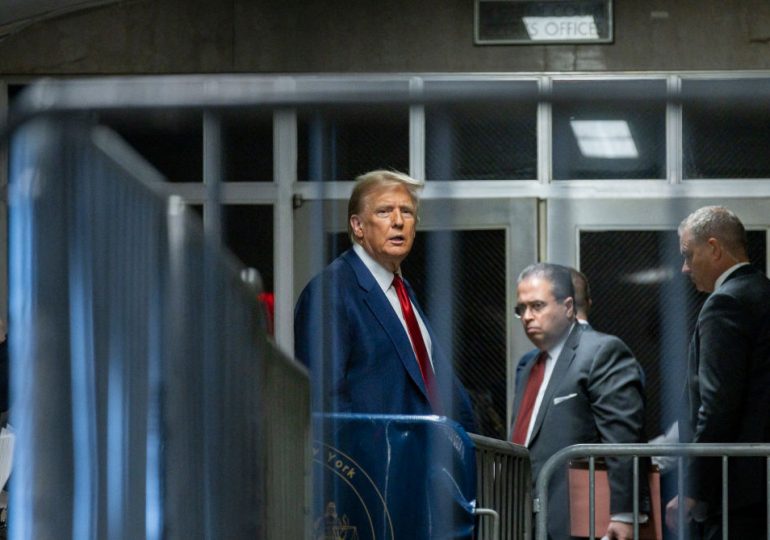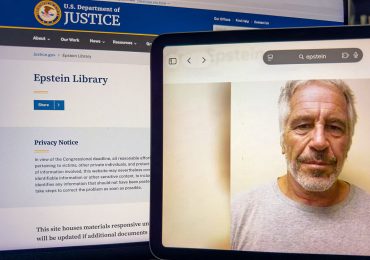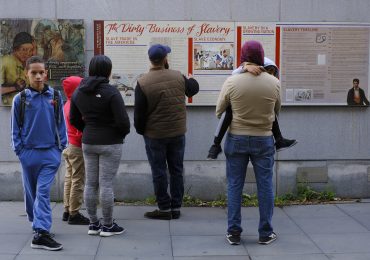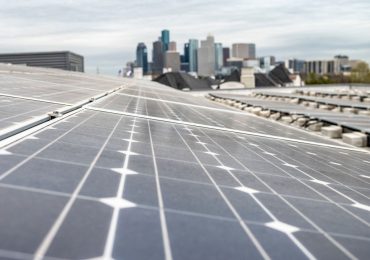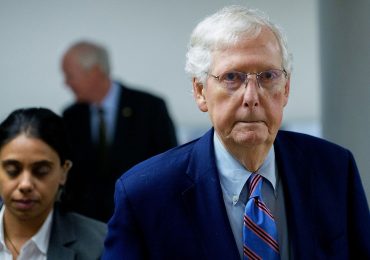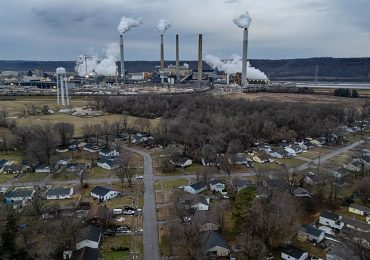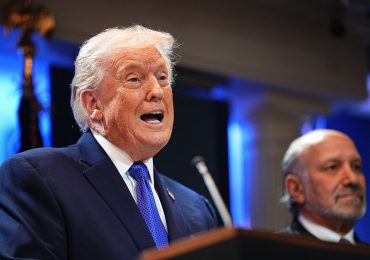Barring any last minute delays, Donald Trump is set to appear at a Manhattan courthouse on Monday for the historic start of his first criminal trial.
[time-brightcove not-tgx=”true”]
The case involves his alleged falsification of business records to cover up a hush-money payment to adult-film star Stormy Daniels ahead of the 2016 election. The trial will mark the first time in history that an ex-President is criminally prosecuted in court, and could take Trump away from the campaign trail for more than a month as he runs for a return to the White House.
Trump faces 34 felony counts in the case brought by Manhattan District Attorney Alvin Bragg, who has accused Trump of doctoring financial records of his companies and orchestrating a scheme to influence the 2016 presidential election. Trump has denied all wrongdoing and accused Bragg of carrying out a politically motivated witch hunt against him.
The unprecedented case is the first of Trump’s four criminal cases to go to trial—and may be the only one to wrap up before the November election. The trial is expected to last six weeks, starting with jury selection on Monday. Prospective jurors will be asked if they have ever attended one of Trump’s rallies, if they belong to groups like the Proud Boys or Antifa, or if they volunteered with a political entity associated with the former President, according to a letter the judge provided attorneys.
Here’s what to know about Trump’s hush-money trial.
What are the legal questions?
Prosecutors will attempt to prove that Trump is guilty of maintaining false business records with the intent to hide a $130,000 hush-money payment to Stormy Daniels, an adult-film actress who claimed she had a sexual encounter with him in 2006. The payments allegedly were made to keep Daniels from speaking publicly about the affair in the final weeks of Trump’s 2016 presidential campaign.
If convicted, Trump could face up to four years in prison for each of the 34 charges against him. While paying hush money is not always illegal, prosecutors allege that Trump reimbursed his then-lawyer Michael Cohen in a series of installment payments processed by his business, which prosecutors say were fraudulently disguised as corporate legal expenses in violation of New York law.
Under New York law, falsifying business records is usually a misdemeanor but it can become a felony when there is an “intent to defraud” that includes an intent to “commit another crime or to aid or conceal” another crime. Bragg has said that the alleged payment scheme was intended to cover up violations of New York election law, which makes it a crime to conspire to illegally promote a candidate. He also said the $130,000 payment exceeded the federal campaign contribution cap and violated state tax laws.
The charges Trump faces are all considered class E felonies in New York, the lowest tier of felony charges in the state. Prosecutors will need to show that Trump not only falsified or caused business records to be entered falsely, but that he did so to conceal another crime.
Will the trial be televised?
The trial is not expected to be televised since New York state is one of three jurisdictions that does not permit audio-visual coverage of trial-court proceedings. Federal judges sometimes make an exception to this long-standing rule barring cameras from their courtrooms, but the judge presiding over the hush-money case has already rejected past media requests for greater access and appears unlikely to change course.
Pictures of Trump in the courtroom, however, may be allowed. When Trump was arraigned in Manhattan last April, Judge Juan Merchan permitted photographers to record still images before the arraignment but ruled that they would have to leave once the arraignment began. He also approved TV cameras in the hallways of the Manhattan courthouse, but said reporters would not be allowed to carry electronic recording devices into the courtroom or overflow rooms, claiming that cameras could disrupt the “dignity and decorum of the court” and put the safety of those involved at risk.
Does Trump have to be there every day?
Under New York state law, Trump is required to attend his entire criminal trial in person, potentially limiting his ability to travel outside of the state as he campaigns for President. The trial is expected to last up to six weeks, depending on how long jury selection takes and whether the judge opts for half-day proceedings or days off to attend other cases.
But Trump may receive some leniency from the judge. The same day he is set to appear in court for the start of the trial, Trump is also scheduled to be deposed in one of the civil lawsuits stemming from the merger of his social media startup with a so-called blank check company. Judge Merchan could allow Trump to miss part of the hush-money trial to attend the deposition.
In the past, Trump has chosen to appear at some court proceedings he wasn’t required to attend, often holding press conferences with reporters outside the courtrooms. He’s used those appearances to amplify both his campaign messages and his assertion that all of the charges he faces are politically motivated.
Who are the witnesses?
Daniels and Cohen are both expected to take the stand as witnesses for the prosecution, with Bragg’s office hoping that Cohen can directly tie Trump to the false business records.
Other witnesses could include Karen McDougal—a former Playboy model who received a $150,000 payment from the National Enquirer for rights to her story about an alleged affair with Trump—and members of Trump’s inner circle, including his longtime assistant Rhona Graff, his former director of Oval Office operations Madeleine Westerhout, and former campaign and White House aide Hope Hicks.
Trump’s lawyers are expected to attempt to undermine Cohen’s testimony by noting that he pleaded guilty to a variety of federal crimes in 2018—including for his role in the hush-money payment—and that he and Trump had a falling out many years ago.
It’s unclear if Trump will take the stand in his own defense, or if his lawyers will call any witnesses.
What happens if Trump gets convicted?
If Trump is convicted, he could face a sentence of up to four years in New York prison for each charge—a maximum of 136 years. And since falsifying business records is a state crime, only the New York governor—Kathy Hochul, a Democrat—could pardon him.
But given Trump’s age, 77, lack of a prior conviction, the fact that he’s the first former President to ever be criminally tried, and that he may become President again, legal experts say there’s no guarantee that a conviction would result in jail time. The judge is not required to imprison Trump if he’s convicted by a jury; most first-time offenders in non-violent cases are often sentenced to probation, and Trump’s unique position could raise a host of extraordinary issues and considerations in sentencing.
Trump can still run for President if he’s convicted—or even inside a jail cell—though it would entail a range of unprecedented and untested legal questions if he wins the election after being convicted of a crime.
Leave a comment
